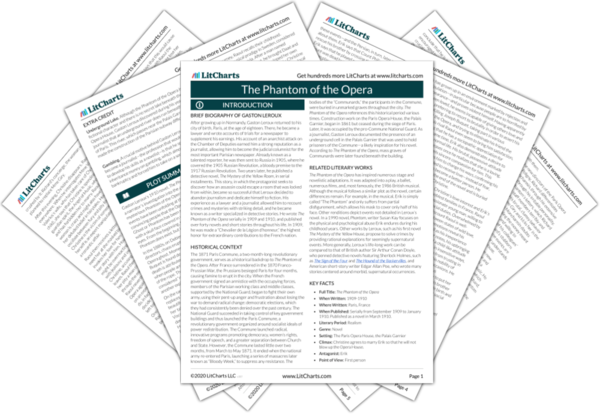The new directors’ skepticism is understandable, since they have not yet had experiences of their own to confirm the Phantom’s existence. However, their nonchalant attitude shows that they are unaware of the dangers they actually face. As the story evolves, their belief in a joke, instead of seeming rational, proves preposterous given the numerous signs that extraordinary, potentially dangerous events are taking place at the Opera.
